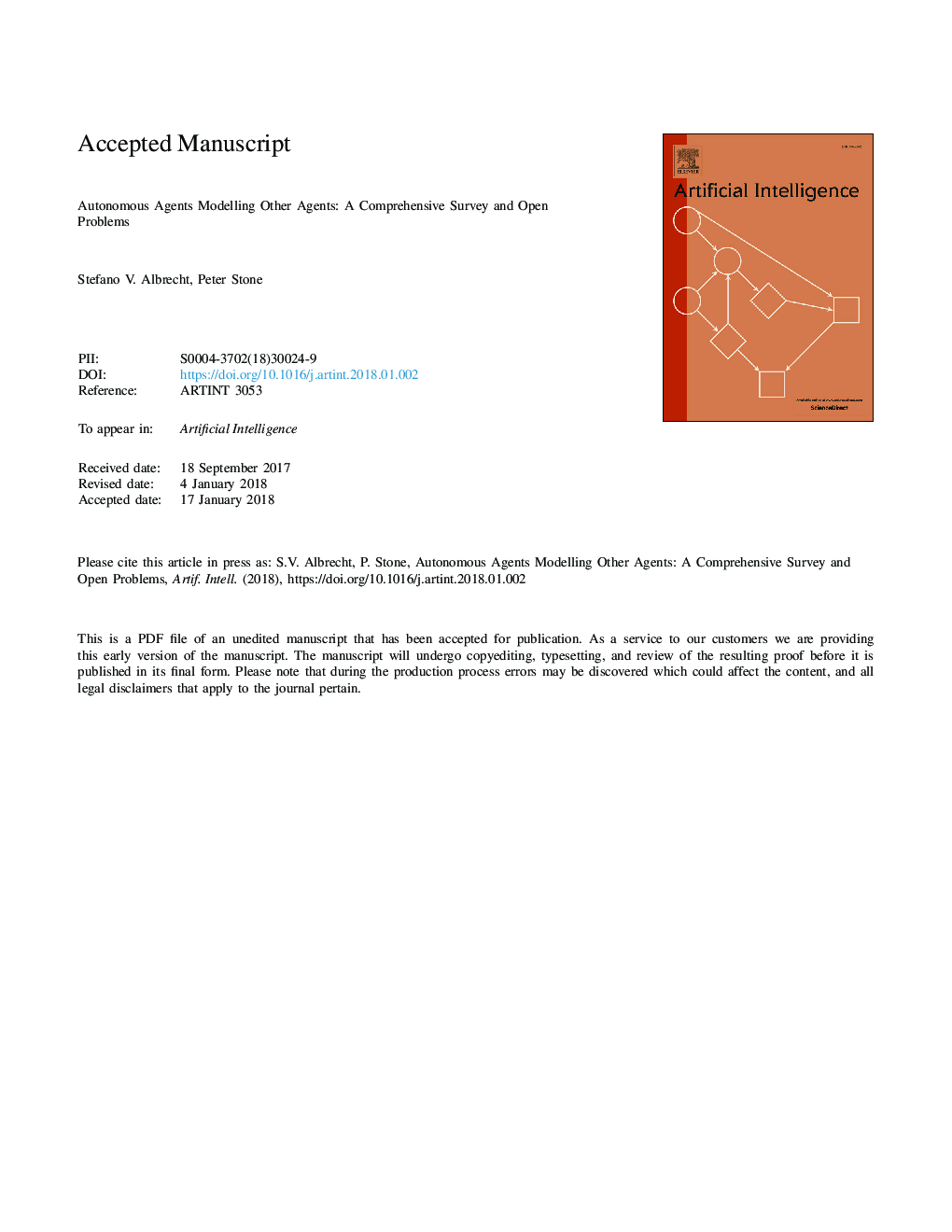| Article ID | Journal | Published Year | Pages | File Type |
|---|---|---|---|---|
| 6853038 | Artificial Intelligence | 2018 | 46 Pages |
Abstract
Much research in artificial intelligence is concerned with the development of autonomous agents that can interact effectively with other agents. An important aspect of such agents is the ability to reason about the behaviours of other agents, by constructing models which make predictions about various properties of interest (such as actions, goals, beliefs) of the modelled agents. A variety of modelling approaches now exist which vary widely in their methodology and underlying assumptions, catering to the needs of the different sub-communities within which they were developed and reflecting the different practical uses for which they are intended. The purpose of the present article is to provide a comprehensive survey of the salient modelling methods which can be found in the literature. The article concludes with a discussion of open problems which may form the basis for fruitful future research.
Related Topics
Physical Sciences and Engineering
Computer Science
Artificial Intelligence
Authors
Stefano V. Albrecht, Peter Stone,
